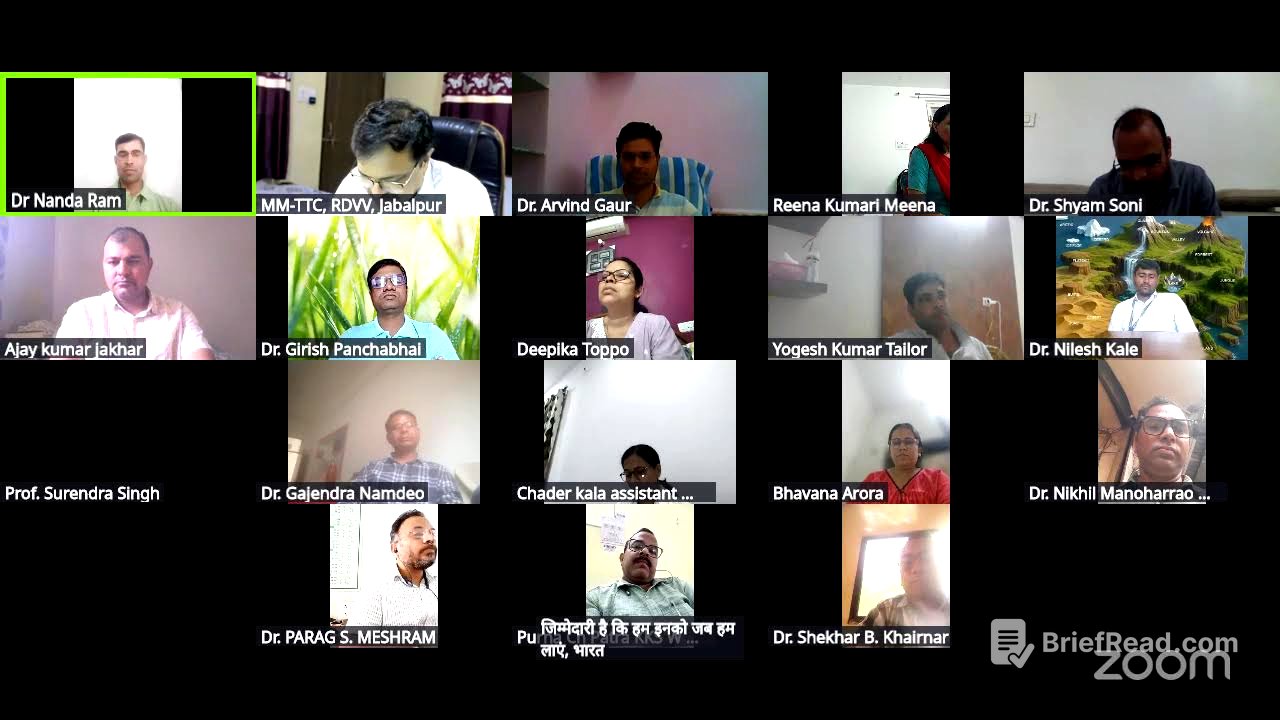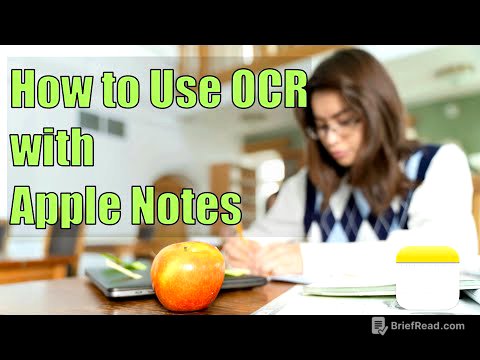TLDR;
This YouTube video features a lecture by Professor Surendra Singh on organic terrace gardening for sustainable development. The lecture emphasizes the importance of growing your own food to avoid harmful chemicals and promote a healthy lifestyle. Professor Singh discusses the health benefits of home gardens, the difference between conventional and organic farming, and practical tips for starting your own organic terrace garden, including soil composition, composting, and pest control. He also touches on the potential for terrace gardening as a business and the astrological benefits of certain plants.
- Importance of organic terrace gardening for health and sustainability.
- Practical tips for starting and maintaining a terrace garden.
- Potential for economic and health benefits through home gardening.
Introduction of Professor Surendra Singh [0:15]
Professor Surendra Singh, from Rani Durgavati University Jabalpur, is introduced. He holds an M.Sc. and Ph.D. in Botany from Banaras Hindu University. He has served in various roles, including Dean of the Faculty of Life Sciences and Director of the University Institute of Vocational Studies and Skill Development. He has also been a visiting scientist at international institutions and has completed numerous research projects.
The Need for Organic Cultivation [6:13]
The lecture begins with a discussion on the importance of shifting from inorganic to organic cultivation. In urban areas, terraces and rooftops can be utilized for gardening, growing vegetables, fruits, and medicinal plants. The current state of vegetable markets is criticized for lacking proper cleaning facilities, and the use of harmful chemicals in farming is highlighted. The food available in the market is often contaminated with poisons and deadly microorganisms.
Impact of Pesticides and Benefits of Home Gardens [11:50]
The impact of using high amounts of pesticides, herbicides, and insecticides is discussed, including their effects on reproductive ability, fertility, and the development of diseases like cancer and asthma. These chemicals also harm biodiversity and cause soil, water, and air pollution. The lecture emphasizes the health benefits of home gardens, such as stress relief, immunity boosting, and improved brain health. Gardening can reduce the risk of dementia and provide a form of exercise.
Boosting Immunity and Balanced Diet [21:28]
Boosting immunity involves eating a diet high in fruits and vegetables, engaging in moderate exercise, managing stress levels, and maintaining a balanced diet. A balanced diet includes adequate amounts of fiber and various nutrients to ensure good health. It should contain sufficient amounts of cereals, fruits, vegetables, pulses, and dairy products, as well as fats and sugars.
Conventional vs. Organic Farming [25:31]
The lecture contrasts conventional and organic farming. Conventional farming is based on economic orientation, using inorganic fertilizers and GMOs, while organic farming is based on ecological orientation, avoiding synthetic fertilizers and controlling weeds manually. Organic produce has higher levels of antioxidants and vitamins compared to conventionally grown produce.
Organic Terrace Gardening and Types of Organic Farming [33:24]
Organic terrace gardening involves producing crops and livestock without synthetic chemicals and inorganic fertilizers, aiming for human welfare without harming the environment. Types of organic farming that can be done at home include terrace gardening, rooftop gardening, balcony gardening, hydroponics, kitchen gardening, and aquaponics.
Cultivation of Spirulina, Azolla, and Mushroom [34:34]
The lecture discusses the cultivation of spirulina, a blue-green algae rich in protein, and azolla, a water fern used as a biofertilizer. It also mentions the possibility of cultivating mushrooms on a terrace with a shaded area.
Home Terrace Gardening: Requirements and Materials [38:08]
Home terrace gardening involves cultivating vegetables, fruits, and flowers on terraces, balconies, or rooftops. It doesn't require a farming background, just motivation, dedication, and practice. Essential requirements include checking space capacity, ensuring proper drainage, and gathering materials such as seeds, soil, pots, and garden tools.
Preparing Potting Mix and Organic Compost [43:04]
A good potting mixture consists of garden soil, cow dung manure, and coconut peat. Organic compost can be made at home using kitchen waste, garden waste, and soil. The mixture should be left for 90 days to decompose. Garbage enzymes, produced during composting, can be used as a liquid fertilizer.
Bio Enzyme Production and Cultivation Methods [48:26]
Bio enzymes can be produced at home using fruit peels, jaggery, and water. This mixture ferments over 90 days and can be used as a cleaner. Cultivation methods include using seeds, roots, rhizomes, and cuttings. Seedlings can be transferred using germination trays.
Protecting Plants and Advantages of Terrace Gardening [52:18]
Plants can be protected from pests naturally by preparing bio pesticides at home using neem oil or neem leaf extract. Advantages of terrace gardening include access to safe, pesticide-free vegetables, physical exercise, clean air, and increased oxygen levels. It also reduces heat absorption in buildings and acts as a habitat for birds and insects.
Benefits of Organic Foods and When to Plant [55:50]
Organic foods prevent premature aging, boost the immune system, and ensure a safe future generation. They also taste better and reduce the risk of heart disease and cancer. Planting calendars are available online to determine the best time to plant specific vegetables.
Terrace Gardening as a Business and Astrological Benefits [57:08]
Terrace gardening can be a business with small investments and no labor needed. Produce can be sold to neighbors or vendors. Astrological benefits of gardening include creating a Navagraha Vatika, which is believed to attract positive energy and remove Vastu Dosh.
Examples of Terrace Gardens and Plants [1:03:51]
The lecture showcases examples of terrace gardens with various vegetables, fruits, and medicinal plants. These include tomatoes, okra, eggplant, lettuce, gourds, mint, spinach, moringa, neem, and turmeric. Fruits like lemons, watermelons, pomegranates, grapes, guavas, and mangoes are also grown.
Microgreens, Internships, and Conclusion [1:11:40]
Microgreens can be grown indoors soil less and used for garnishing. Internships and training are provided to college students to learn organic cultivation. The lecture concludes by emphasizing the importance of organic cultivation for health and environmental sustainability. The speaker encourages viewers to grow their own food and provides contact information for further assistance.
Q&A Session [1:21:26]
The session addresses questions about soil composition, using neem leaves, preventing seepage, spirulina consumption, promoting kitchen gardens, banning pesticides, alternatives to cow dung, multi-layer cropping, lack of flowering in gourds, heavy metals in vegetables, and more.


![[아육톡2화] 인지학습치료가 뭐죠?!](https://wm-img.halpindev.com/p-briefread_c-10_b-10/urlb/aHR0cDovL2ltZy55b3V0dWJlLmNvbS92aS92ZGxkZUlFV3JYMC9ocWRlZmF1bHQuanBn.jpg)






